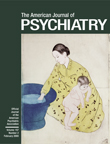Dextromethorphan-Induced Psychosis
Mr. A, an 18-year-old high school student, came to the psychiatric emergency room after several days of consuming cough syrup (one to two 8-oz bottles per day containing dextromethorphan, 711 mg per bottle). He described experiencing dissociative phenomena involving the belief that he had died and had “become just [his] thoughts,” coupled with the experience of observing himself from outside his body. He reported vivid visual hallucinations, including the ability to “see 360° in all four quadrants” and to literally “see into people.” He also recounted delusions of telepathy (he could ascertain the thoughts of other students at school if he sat near them and could communicate with them without speaking) and paranoia (his employer was trying to kill him and strangers might hurt him). Mr. A had previous diagnoses of attention deficit hyperactivity disorder and social phobia. His past medical history was unremarkable. He recounted occasional marijuana use (one to two joints per week). His father had bipolar disorder.Mr. A’s symptoms showed complete remission without neuroleptic treatment within 4 days after discontinuing the abuse of dextromethorphan, and he was discharged from the hospital with no evidence of psychosis. He was rehospitalized twice more over the next 2 months with similar symptoms. Each time, he reported consuming large doses of dextromethorphan and showed complete resolution of his psychotic symptoms with abstinence from the ingestion of cough syrup. During a subsequent sustained abstinence from dextromethorphan while participating in outpatient substance abuse treatment, Mr. A had no recurrent psychosis. He acknowledged that his previous episodes of cough syrup abuse were routinely followed by states of hallucinosis, paranoia, and dissociation.
References
Information & Authors
Information
Published In
History
Authors
Metrics & Citations
Metrics
Citations
Export Citations
If you have the appropriate software installed, you can download article citation data to the citation manager of your choice. Simply select your manager software from the list below and click Download.
For more information or tips please see 'Downloading to a citation manager' in the Help menu.
There are no citations for this item
View Options
View options
PDF/ePub
View PDF/ePubGet Access
Login options
Already a subscriber? Access your subscription through your login credentials or your institution for full access to this article.
Personal login Institutional Login Open Athens loginNot a subscriber?
PsychiatryOnline subscription options offer access to the DSM-5-TR® library, books, journals, CME, and patient resources. This all-in-one virtual library provides psychiatrists and mental health professionals with key resources for diagnosis, treatment, research, and professional development.
Need more help? PsychiatryOnline Customer Service may be reached by emailing [email protected] or by calling 800-368-5777 (in the U.S.) or 703-907-7322 (outside the U.S.).

